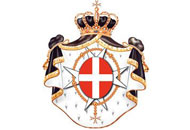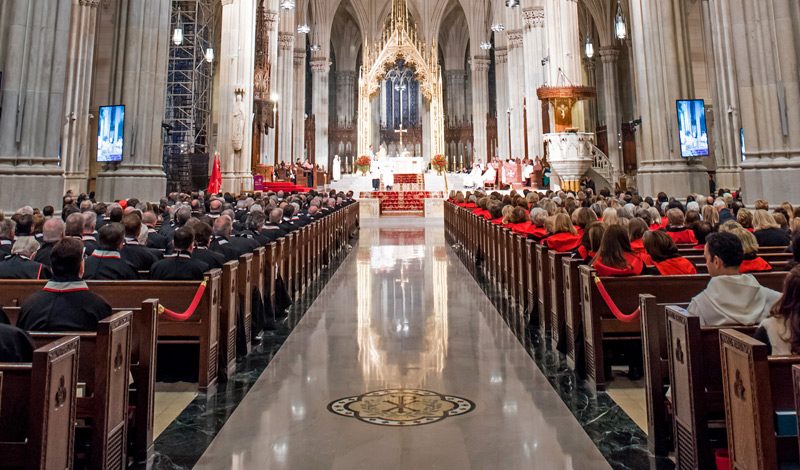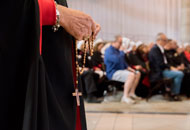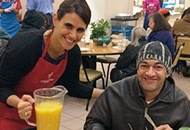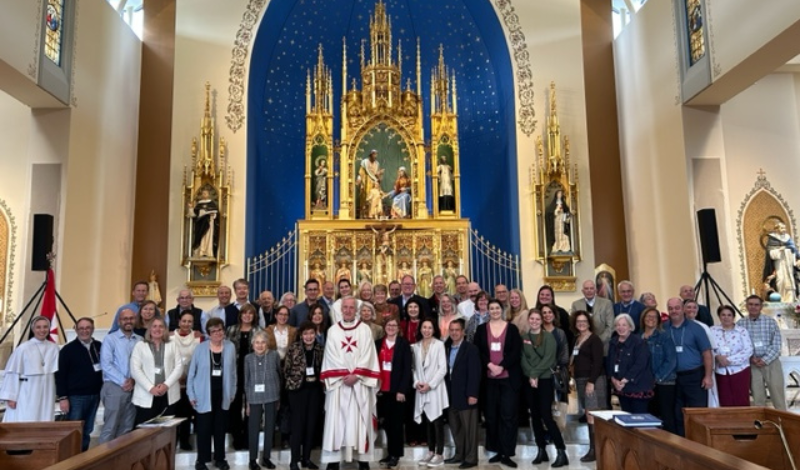Cultivating virtue is the key to sanctity – and is necessary for human beings, including children, to thrive, Michigan Area members learned at their October 7th retreat.
An audience of 52 Dames, Knights, auxiliaries, and candidates in formation gathered at the Motherhouse of the Dominican Sisters of Mary, Mother of the Eucharist, in Ann Arbor. Sr. John Dominic, one of the community’s four foundresses, presented “The Journey to Sanctification Through Virtue, the Fuel for Human Flourishing.”
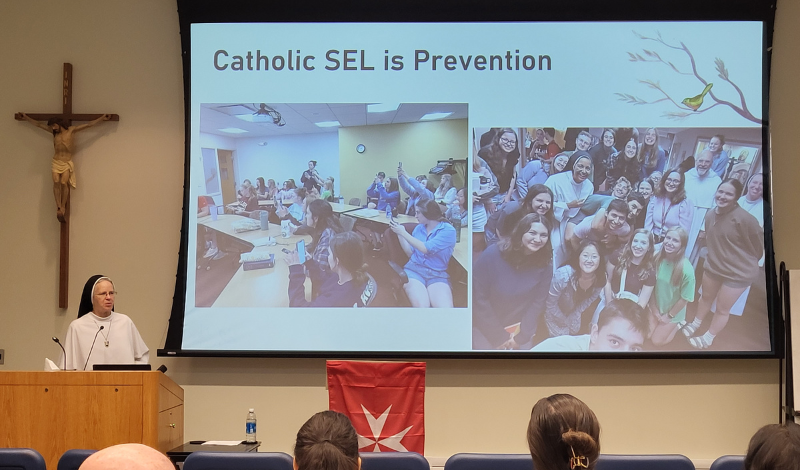
Sr. Dominic developed the Disciples of Christ, Education in Virtue curriculum based on St. Thomas Aquinas’ teaching on the virtues and gifts of the Holy Spirit, and is also the director of Openlight Media, the Sister’s digital media ministry. “Virtue is the habit of doing good,” Sr. Dominic reminded the audience – and it’s also the way to the well-integrated “good life” and happiness. “Healthy mind, healthy heart.”
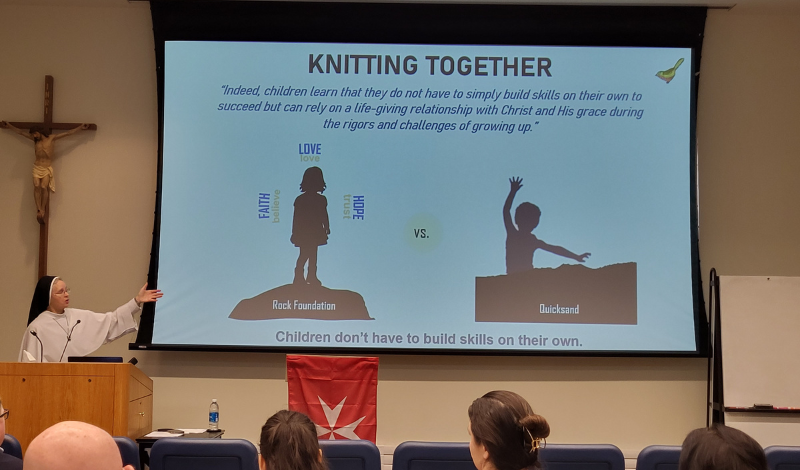
Also presenting was neuropsychologist Dr. Karen Villa, who discussed how childhood experiences can shape mental health in adulthood. “The quality of experiences affect brain development in a very profound way,” she explained. “Experiences are the architects of our minds. Virtue training supports and promotes brain development in children.” Childhood stress, including the lack of a stable caregiver, can lead to anxiety, depression, and other disorders in later life.
The retreat included Mass celebrated by Msgr. Michael LeFevre, ChM. Afterwards, Michigan Area members took detailed individual surveys to assess their strongest virtues – and areas needing improvement. After lunch and a final reflection, Michigan Area members said the Rosary in the Sisters’ chapel – a fitting conclusion to the day on the feast of Our Lady of the Rosary.
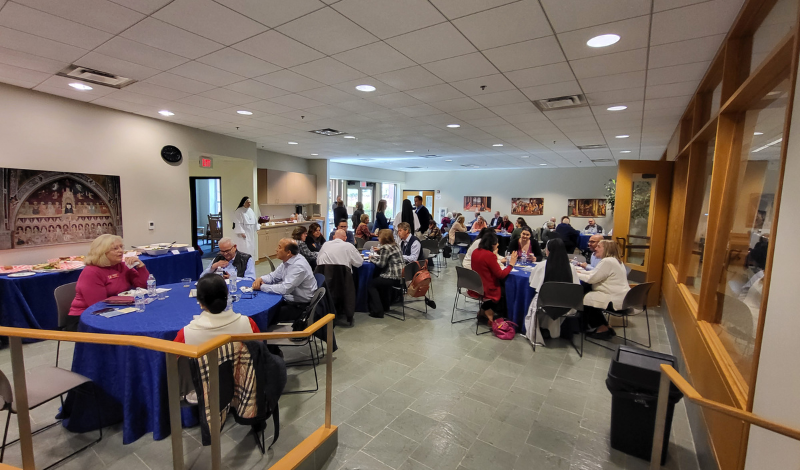
The Dominican Sisters of Mary, Mother of the Eucharist, were canonically established in 1997 in response to Pope St. John Paul II’s call for a New Evangelization. They seek to share God’s message of faith and the joy of religious life with the modern world through various outreaches, including education, vocations, and culture. To learn more, visit https://www.sistersofmary.org/.
